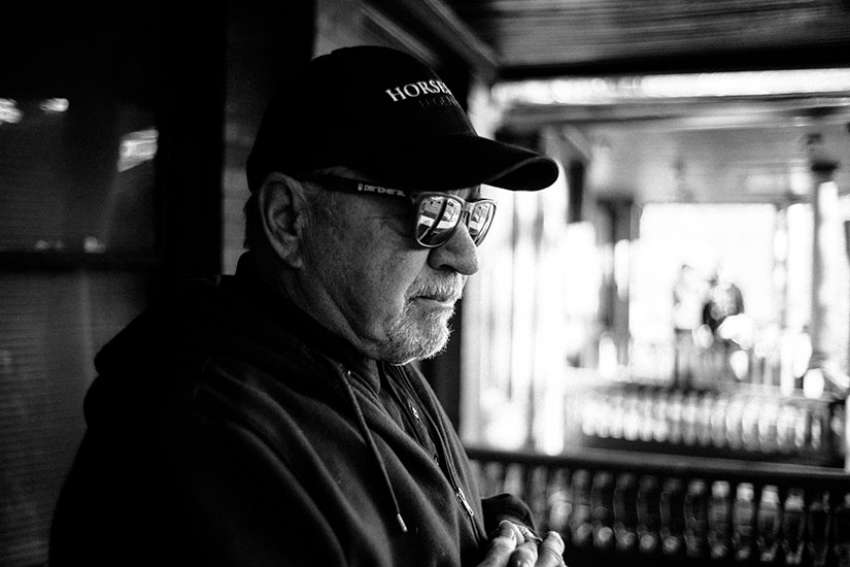“That’s when the magic happens, when films are trying to make people lean into it,” Schrader said. “Emotions shouldn’t be dictated to you by the artist, but when you start leaning in all these things happen. Think about fast meditation. It’s like that … it doesn’t work.”
Film lovers, critics and fans of Schrader packed the TIFF Bell Lightbox theatre in Toronto on April 3 to hear his keynote speech on transcendental style in film.
Schrader’s talk was part of Opening Frames: Cinema and Transcendence, a two-day conference presented by Ryerson University’s philosophy department, as well as the Centre for Philosophy, Religion and Social Ethics at the Institute for Christian Studies and Imago.
For over five decades, Schrader has helped create films of all genres. Among his credits, he wrote Taxi Driver (1976), The Last Temptation of Christ (1988) and Bringing Out The Dead (1999), and directed American Gigolo (1980).
Schrader said many spiritual films today are trying to encourage viewers to lean forward, instead of telling viewers everything they need to feel at that moment.
Schrader pointed out that some films people may think are spiritual or transcendental, in fact are not. Instead, they’re routine Hollywood dramas that are full of drama and empathy. Transcendental films are about invoking an aesthetic and emotional experience.
Schrader refers to himself as being Presbyterian, although he has different views on religion and the spiritual aspect of it.
“Religion is like a club that has rules, the feeling of inclusivity and having to pay your dues,” Schrader said. “Spirituality is between the human being and the mystery of life and maybe that’s why I’m a believer in believing.”
Well into the 1960s, Schrader was curious about the connection between the world he was living in and the one he had come from. There was a link between the sacred and the profane, to the spiritual life of the Christian and the commercial life of a film.
“Spirituality and art are not connected by the what, but rather the how.” Schrader said. “Spirituality is a way of believing, but more importantly it’s a way of believing that its access is by the way of doing.”
In 1972, at age 26, Schrader wrote Transcendental Style in Film, simply because no one had written about spirituality and film yet. The book analyzed the transcendental styles of directors Robert Bresson, Carl Dreyer and Yasajiro Ozu. Schrader explained how these three directors and a few others used sparse film techniques around spiritual subjects.
Schrader revisited and revised the book which will be out in 2018.
Some of the concepts Schrader addressed in the book and in his speech were the elements of action and empathy, which are the focus of many films because they appeal to most viewers.
“Transcendental style and other withholding styles work against action and empathy,” Schrader said. “It’s what drives movies becoming commercial and works against the things we like about movies, such as inaction or people walking rather slowly. When it comes to empathy, filmmakers are forcibly telling viewers exactly what to feel through scenes.”
Film critic and writer José Teodoro praised Schrader for zeroing in on an important element for transcendental filmmakers.
“I like how concisely Schrader framed the idea of leaning out and leaning in,” Teodoro said. “There are certain type of filmmakers that if they’re doing their work right the audience will do their own editing and tell their own story.”
Ramtin Teymouri, a PhD student in cinema studies at Ryerson University, said Schrader’s views “can be argumentative, but at the same time it opens up the conversation of what’s in fact spiritual or transcendental and what isn’t.”
(Florez is a freelance writer in Toronto.)


